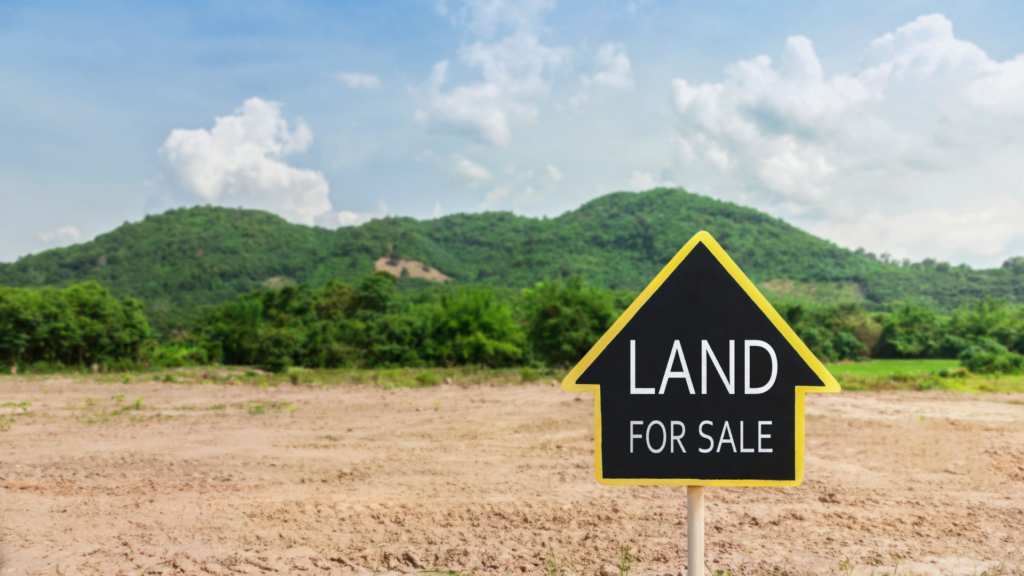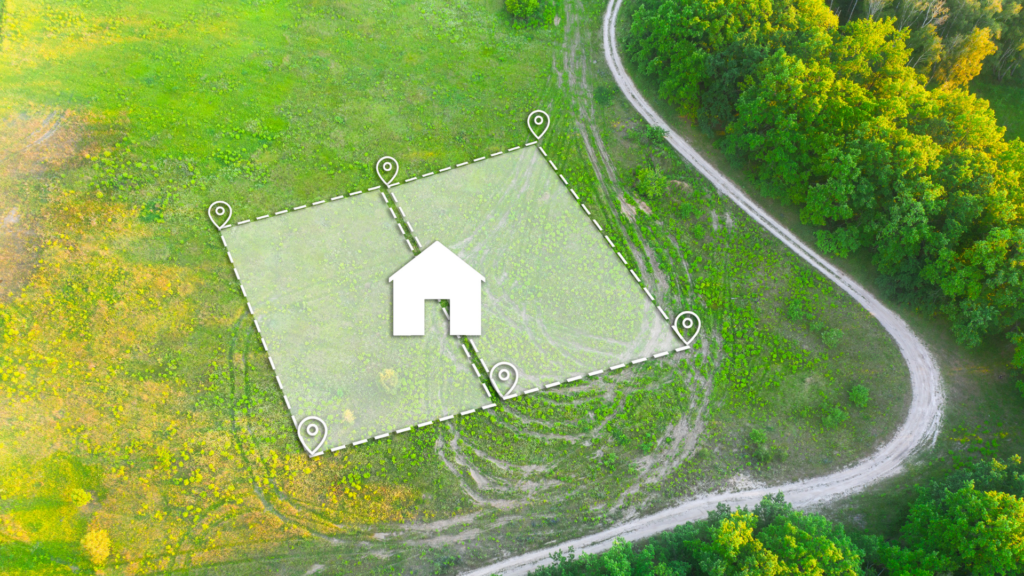Loans For Buying Land Only Secrets Revealed

Loans for Buying Land Only – A Comprehensive Guide
When considering loans for buying land only, financing options differ significantly from traditional home mortgages. These are especially for unimproved business and residential land purchases. Land loans have different features and are, therefore, with qualifications and probabilities of risk for the borrowers and lenders.
So today sitting here and reading this article, you will get to know more about how does a loan for the purchase of land work, the type of loans out there, and what requirements in order to get those loans.
What is a Land Loan?
A land loan is a loan type that was particularly developed to facilitate acquisition of land by anyone who wishes to. Traditional home mortgage is where the lender’s claims against the holder are secured by the property, however, land mortgages are far riskier for lenders, as it can be seen that undeveloped land has little market value.
That said, any form of loan, particularly those that involve land, tends to be costly, accompanied by higher rates of interest, more stringent qualification standards, and greater down payment.

Types of Loans for Buying Land Only
Different types of land loans exist depending on the nature of the land you want to purchase:
1. Raw Land Loans
Valley land implies land which has not had access to any utilities and is uninhabited by any kind of services. This is the most dangerous type of a land as it is has a lot of hazards to the lenders because a lot of money and time has to be invested in order to bring the land into productivity. Consequently, lenders may require:
- A large down payment, commonly, in the range of 30% – 50%
- High-interest rates
- Specific development proposals on showing how the land will be used
2. Unimproved Land Loans
A raw land possesses some limited amenities like road network or provision of utilities may be lacked major utilities such as sewerage or supply of water. While less risky than raw land, unimproved land loans still require:
- A down payment of 20%–30%
- Good credit scores
- Interest rate is slightly higher than a normal mortgage rate for the property.
3. Improved Land Loans
Developed land means the ones that already exist and what Septume operating on is, already have developed amenities for example the land has water, electricity as well as road networks. Because this type of land is closer to being buildable, the terms are more favorable:
- As little as $15,000 down payments have been accepted to as much as $20,000 for more affluent customers.
- This is due to the fact that they are less expensive than raw or unimproved land and interest rate having dropped.
How Do Loans for Buying Land Only Work?
The procedures involved in acquiring a land loan are not very different from those you would use when acquiring any other loan, however, the requirements are slightly stringent because of the dangers associated with the transaction. This fact makes the figure a lot more profound and significant – land loans usually are repaid in terms which may last from 5 to 10 years while the home loan, in turn, is 15 to 30 years.
Also, the interest only period may be allowed with the lump sum payment at the end of the entire contract period.
Key factors that affect land loans include:
- Down Payment Requirements: Lenders usually expect bulker down payments in comparison to non-land loans with down payment ranging from 20% and above depending on the type of land.
- Interest Rates: The interest rates are relatively higher than the normal mortgage since it is cheaper to lend for developed land.
- Credit Score Requirements: The credit score should ideally be a minimum of 700 but sometimes the lenders may consider buyers with a slightly low score provided they offer a correspondingly higher down payment.

Key Qualifications for Loans for Buying Land Only
To qualify for a land loan, you will need to meet certain criteria, which include but are not limited to:
- Credit Score: A high credit score is crucial, often 700 or above.
- Debt-to-Income Ratio: Lenders usually prefer a DTI ratio of 43% or lower.
- Development Plans: Lenders often require detailed plans for how the land will be used, especially for raw and unimproved land.
Special Types of Land Loans
In some cases, specific loans may be available for unique situations:
1. USDA Loans
If you’re purchasing rural land to farm or build a home, the U.S. Department of Agriculture offers USDA loans with favorable terms and lower down payment requirements.
2. VA Loans
Veterans may qualify for a VA loan to buy land, but they must plan to build a primary residence on the property.
3. Seller Financing
Sometimes, the seller of the land may offer financing directly. While this can provide flexibility, it’s important to involve a lawyer to ensure the agreement is fair and legally sound.
How to Secure a Loan for Buying Land
Securing a land loan requires preparation. Here are essential steps to take:
- Conduct a Land Survey: A land survey ensures that the boundaries are clearly marked and that the land meets legal requirements for development.
- Check Zoning Laws: Verify that the land is zoned for the intended use (residential, commercial, agricultural).
- Utilities and Access: Ensure the land has access to utilities like water, electricity, and roads, as lenders are more likely to approve loans for land with existing infrastructure.
- Environmental Factors: Assess environmental considerations, such as flood zones, endangered species, and soil quality, as these can affect both land usability and loan approval.
Advantages and Disadvantages of Land Loans
Advantages:
- Flexibility: Land loans allow buyers to secure land for future development or investment.
- Customization: Buyers can develop the land as they see fit, within legal parameters.
Disadvantages:
- Higher Costs: Larger down payments and higher interest rates make land loans more expensive than traditional mortgages.
- Risk of Delays: Developing raw or unimproved land may involve unforeseen complications that delay construction or increase costs.
FAQs
1. What is a land loan?
A land loan is a type of financing used to purchase land, whether it’s raw, unimproved, or improved land. Unlike home mortgages, land loans are considered riskier for lenders because there is no property or structure to act as collateral. As a result, they often come with higher interest rates and more stringent qualification criteria.
2. What are the different types of land loans?
Land loans generally fall into three categories:
- Raw Land Loans: For undeveloped land without utilities or road access. These are the riskiest for lenders and usually require large down payments and high-interest rates.
- Unimproved Land Loans: For land that has some basic infrastructure, like electricity or road access, but is still not fully developed.
- Improved Land Loans: For land that is fully developed with access to utilities like water and roads. These loans come with lower interest rates and down payments compared to raw or unimproved land loans.
3. What is the typical down payment required for a land loan?
The down payment for a land loan can vary depending on the type of land:
- Raw land: Typically 30%–50% of the purchase price.
- Unimproved land: Around 20%–30%.
- Improved land: As low as 15%–20% of the land value.
4. How are land loans different from traditional mortgages?
Land loans differ from traditional mortgages in several ways:
- Higher Interest Rates: Due to the greater risk, land loans have higher interest rates.
- Shorter Terms: Land loans often have terms as short as 2–5 years, while traditional mortgages can extend up to 30 years.
- Balloon Payments: Many land loans feature balloon payments at the end of the term, requiring a large sum to be paid off in one go.
5. What credit score is needed to qualify for a land loan?
Typically, lenders require a credit score of 700 or higher to qualify for a land loan, especially for raw or unimproved land. Some lenders may accept scores in the high 600s if you have a strong financial history and a substantial down payment.
6. Can you use a VA or USDA loan to buy land?
Yes, both VA and USDA loans can be used to buy land, but there are conditions:
- VA loans can only be used to buy land if you plan to build a primary residence on it.
- USDA loans are available for rural land purchases, but similar to VA loans, the borrower must plan to build a home
Final Thoughts
What can be more thrilling; than purchasing land with the aim of putting up some structures or purely for investment purposes, is an interesting venture that comes with a number of considerations especially financial. Such purchases thus requires the use of land loans even though these loans are more rigid in their conditions and have higher risks as compared to normal house loans.
Learning about the kinds of land loans offered in the market and ensuring that you meet all the requirements needed for qualification will improve your chances of accessing an opportunity to finance your land purchase appropriately. To come up with better recommendations tailor made to your situation, consult a lender or financial planner who deals with land loan.
Keep Learning
>> Unlock Hidden Opportunities: Prime Holopaw Florida Land for Sale
>> Unlock Endless Adventure with Florida Recreational Land
>> Hunting Land For Sale in Florida – Prime Opportunities for Outdoor



